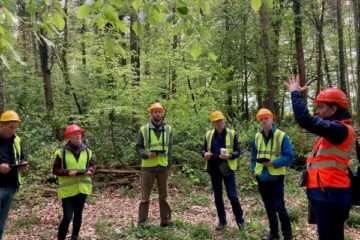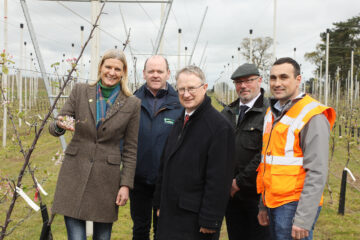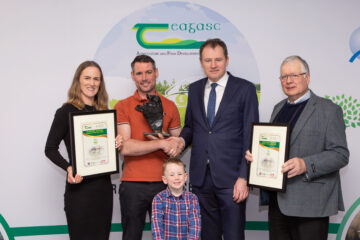The theme of this year’s Teagasc National Beef Conference was ‘Profitable Pathways to Sustainable Beef Farming’, taking place in the Shearwater Hotel in Ballinasloe, County Galway.
The opening address was delivered by the Teagasc Director, Professor Frank O’Mara. He said, “Irish beef farmers have consistently shown that they can adapt to the many new challenges and opportunities that they have had to face over the years. The last 12 months have been particularly challenging with significant increases in input prices. Rising fertiliser, concentrate and energy costs to a level never seen before, have put beef margins under significant pressure. The focus now on many farms will be to examine where inputs can be reduced, while still maintaining output.”
“Teagasc are supporting farmers to play their part in reducing emissions and increasing carbon sequestration. We have launched a number of important new initiatives, as part of the Teagasc Climate Action strategy. We will be providing farmers with a new Signpost Advisory Programme to help them to navigate the pathway for their farm towards improved sustainability. We will also be advancing, in partnership with ICBF and Bord Bia, the development of our new unique Sustainability Digital Platform that will aid farmers in getting a better understanding of the sources of emissions, and how through the implementation of proven technologies they can reduce emissions. Teagasc has also launched a new Virtual National Centre for Agri-Food Climate Research and Innovation.”
Pearse Kelly, Head of the Teagasc Drystock Knowledge Transfer Department, said, “it has been a difficult year for beef farmers in relation to both rising input costs and beef price. There are ongoing concerns around sustained high input prices in 2023. This conference focused on increasing sustainability on beef farms in the longer term. We also focused on the challenges facing farmers in the coming year particularly with rising input costs.”
Dr Paul Crosson, Beef Enterprise Leader, Teagasc Grange addressed the first session of the conference titled ‘Key enablers to improving sustainability on beef farms’. He assessed the potential to improve technical performance and profitability for beef cattle production. Dr Natascha Meunier, from Animal Health Ireland and Programme Manager for Beef Health Check outlined how to improve animal health to increase liveweight performance. Dr Colin Byrne, Beef Researcher, Teagasc Grange discussed how to reduce the age at first calving for suckler cows, which is a key profit driver.
Shane Keaveny, a farmer from Roscommon and a participant in the Teagasc Future Beef programme, outlined how he calves his heifers at 24 months of age and described how he achieves target weight for age and gets his heifers in calf to calve at 24 months. Shane Keaveny operates a suckler beef system where the male calves are finished as under 16 month bull beef.
Red clover has a role in beef production systems. Beef researchers from Teagasc Grange Dr Nicky Byrne and Peter Doyle outlined the latest research. One farmer who has started on this journey this year is Martin Connolly, a farmer from County Roscommon, who is participating in the Teagasc Dairy Beef 500 programme. Martin described how he has incorporated red cover on his farm and his experience to date. From researching red clover swards Martin was impressed with its enhanced ability over grass only swards to maintain high levels of production and animal performance from significantly lower levels of chemical Nitrogen fertilizer.
Teagasc Galway/Clare Regional Advisory Manager Pat Clarke said, “Galway has the highest number of suckler cows. Providing a sustainable beef farming system for farmers is very important to advisors that are working closely with farmers in the region.”
Source: Teagasc



